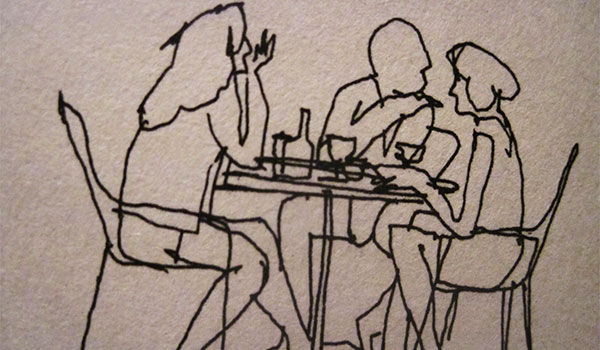“Any fool can criticize, condemn, and complain but it takes character and self control to be understanding and forgiving.” — Dale Carnegie
I’m the first to put my hand up and say, I don’t like receiving criticism. In some ways, I will try at all costs to avoid it by remaining neutral, or even trying not to be overly one sided when I’m writing articles on ThoughtBrick, which isn’t necessarily a bad thing, but the important thing to ask yourself is, ‘are you not saying what you really want to say because you fear criticism?
“It is not the critic who counts; not the man who points out how the strong man stumbles, or where the doer of deeds could have done them better. The credit belongs to the man who is actually in the arena, whose face is marred by dust and sweat and blood, who strives valiantly; who errs and comes short again and again; because there is not effort without error and shortcomings; but who does actually strive to do the deed; who knows the great enthusiasm, the great devotion, who spends himself in a worthy cause, who at the best knows in the end the triumph of high achievement and who at the worst, if he fails, at least he fails while daring greatly. So that his place shall never be with those cold and timid souls who know neither victory nor defeat.” — Theodore Roosevelt
I’ve put together the following five tips for dealing with criticism in what I hope will be a constructive way.
1. Listen to your inner voice
Sometimes criticism hurts because someone has pointed out something we have thought all along but have not wanted to express. We live in a world where everyone wants to give advice based on their own experiences, but the only advice you can really take is your own. Or at least, reflect on any advice given to you and make your own mind up.
If you listen carefully, you’ll know what’s right. Intuition is powerful when used properly. If you’ve stayed true to your own moral compass and core beliefs, I think It’s easier to deal with hurtful remarks (to some extent). Obviously I don’t want to speak for everyone here.
2. Is the criticism constructive?
The next time someone dishes out a bit of criticism, pause, look for the intention behind the remark and determine whether what they are saying is constructive or not. Is the person dishing out the criticism someone who loves and cares about you, an acquaintance, a total stranger…?
Is this person in a bad mood and projecting their own problems onto you or is the delivery clear and rational? Most of the time criticism hurts to some degree regardless of whether it’s constructive or not — but allow yourself to be able to see the difference. And don’t deny yourself the chance to grow if someone does care about you enough to give you some constructive criticism that’s useful.
“When we judge or criticize another person, it says nothing about that person; it merely says something about our own need to be critical.” — Anonymous
3. Reflect and speak your mind
A natural reaction to any criticism is to bite back and get annoyed, especially when we haven’t asked anyone to poke their nose in. I’ve been annoyed many times — partly because I’ve felt like it’s none of someone’s business to tell me how to live my life or what I should and shouldn’t be doing. With this in mind, you’re perfectly entitled to say how you feel too — just remember, fighting fire with fire is rarely constructive unless you want a big explosion.
I do think that it’s always important to speak your mind though, because if someone you care about has said something to hurt you and you stay quiet, overtime resentments will grow or you might bring the situation up again years into the future. Put it this way, if you don’t say how you feel, how will other people know? We’re not all mind readers.
4. Have inner self confidence
if you stay true to your core beliefs, then really work on developing your inner confidence so you don’t feel threatened by people voicing their opinions at you. I read a post on Tiny Buddha called ‘How to deal with criticism well’ and loved this line:
“The more attention your work receives, the more criticism you’ll have to field.”
With this in mind, if you’ve stayed true to yourself, then embrace criticism or negative remarks — you could even feel flattered by it.
Alternatively, if someone criticises you, for example, about something you feel insecure about, then treat the criticism as an opportunity to do something about it. A truly confident response, might even be to thank the other person for bringing something to your attention.
5. It’s OK to admit your weaknesses
It takes a strong person to admit their failures or mistakes, especially when someone else has pointed them out. It’s natural to get defensive or feel threatened, but it’s always important to reflect and ask yourself ‘Does the critic have a point?’ If they do, then be the bigger person and admit to being wrong.
“Most criticism is probably based, at least in part, on some truths. Criticism may appear negative. But, through criticism we have the opportunity to learn and improve from their suggestions.” — Lifehack
If you enjoyed this article, please share it and support ThoughtBrick by liking our Facebook page and subscribing to get ThoughtBrick updates.
Read more articles about dealing with criticism effectively
How to deal with criticism well: 25 reasons to embrace it (Tiny Buddha)
7 effective ways to deal with criticism (Life Hack)
How to deal with criticism (Wiki How)
Image source: taken from the book, the Art of looking sideways

